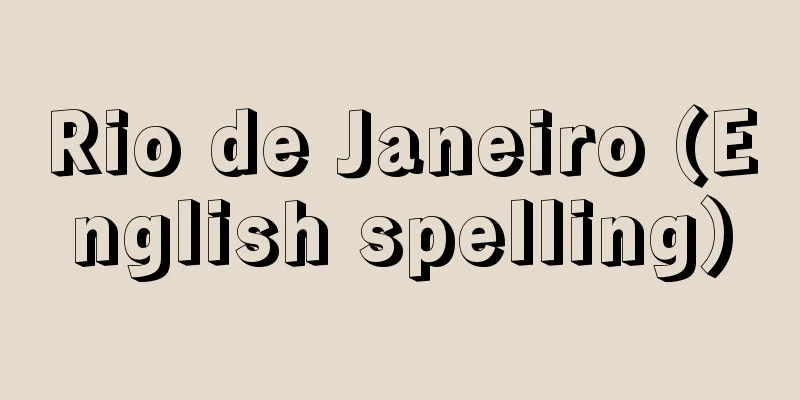Shintaro Ishihara

|
Novelist. Born in Hyogo Prefecture. Graduated from Hitotsubashi University. Member of the House of Councillors. Member of the House of Representatives. In 1955, he won the first Bungakukai Newcomer Award and the Akutagawa Prize for "Season of the Sun." He coined the catchphrase "Taiyo-zoku" ("sun tribe"), and became an idol of a new generation due to his rebellion against established morality. In 1968, he ran for the House of Councillors as a member of the Liberal Democratic Party and was elected. In 1999, he ran for Tokyo governor without the support of a political party and was elected. He was re-elected in 2003, re-elected for a third time in 2007, and in 2011, he initially expressed his intention to retire, but ran for a fourth term. In April 2012, in relation to the Senkaku Islands issue, he announced a plan for Tokyo to purchase the islands from the landowners, and began collecting donations for the Senkaku Islands for Tokyo, forcing the Democratic Party and Noda administration to express its stance. In September 2012, the Noda administration decided to nationalize the islands by purchasing them from the landowners. Chief Cabinet Secretary Fujimura explained the reason for nationalization as "because if a third party purchases them, it will be impossible to maintain and manage them peacefully and stably." China, which claims sovereignty over the Senkaku Islands, strongly opposed the Japanese government's decision to nationalize the islands, and large-scale anti-Japanese demonstrations broke out in various places, resulting in the worst tension between Japan and China since the normalization of diplomatic relations. In October 2012, Ishihara suddenly resigned as Tokyo governor, and in November, he renamed "Tachiagari Nippon" to "Taiyo no To" (Party of the Sun) and became its co-representative. With an eye on the House of Representatives election, he merged the party with the Japan Restoration Party, headed by Osaka Mayor Hashimoto Toru, and became the representative of the Japan Restoration Party. He ran in the House of Representatives election in December of the same year, won in the Tokyo proportional representation block, and returned to national politics for the first time in 17 years. He has also been vocal about Japan's nuclear armament, and as a far-right nationalist politician, Ishihara is seen as a threat not only in China and South Korea, but also in the United States. Following the dissolution of the Japan Restoration Party in July 2014, Ishihara Shintaro's group founded the Next Generation Party in August. In the December 2014 House of Representatives election, he ran in the Tokyo proportional representation block, but lost, and officially announced his retirement from politics. His literary activities include "Fossil Forest" (1970) and "Survival" (1989). Other works include "Japan That Can Say No" and "Younger Brother" (1996), which depicts Yujiro Ishihara. → Related topics Japan Innovation Party | Naoki Inose | Taxation based on gross income | Sun tribe | Tokyo Metropolitan University | Toru Hashimoto | Koichi Hamada | Akio Morita Source : Heibonsha Encyclopedia About MyPedia Information |
|
小説家。兵庫県生れ。一橋大学卒業。参議院議員。衆議院議員。1955年,《太陽の季節》で第1回文学界新人賞,芥川賞。〈太陽族〉の流行語を生み,その既成道徳に対する反抗によって新世代のアイドル的存在となった。1968年,自民党から参議院議員選挙に立候補,当選。1999年には政党の支持は受けずに東京都知事選に出馬し,当選した。2003年再選,2007年三選,2011年には当初引退の意向を周囲にもらしていたが立候補し,四選を果たした。2012年4月,尖閣諸島問題に関連して,同島を東京都が地権者から購入する計画を発表,東京都尖閣諸島寄付金募集を開始,民主党・野田政権の態度表明を迫った。2012年9月野田政権は国が同諸島を地権者から購入し国有化することを決定,藤村官房長官は〈第三者が購入することにより,平穏かつ安定的な維持管理ができなくなくなるからである〉として国有化の理由を説明した。日本政府の国有化決定に,尖閣諸島の領有権を主張する中国は猛烈に反発,各地で大規模な反日デモが起こるなど,日中国交正常化以降最悪といわれる日中の緊張状態が現出した。石原は2012年10月,突如東京都知事を辞任,11月には〈たちあがれ日本〉を改称して〈太陽の党〉を結党して共同代表に就任,さらに衆議院選をにらんで,同党を橋下徹大阪市長の主宰する日本維新の会に合流させ,日本維新の会の代表に就任した。同年12月の衆議院選に出馬し,比例東京ブロックで当選を果たし,17年ぶりに国政に復帰した。日本の核武装についても積極的に発言しており,極右・ナショナリスト政治家として,中国・韓国などにはもちろん,米国でも石原を危険視する見方が多い。2014年7月日本維新の会の解党にともない石原慎太郎グループは8月に次世代の党を結党。2014年12月の衆議院選では比例東京ブロックで立候補したが落選,正式に政界引退を表明した。文学活動に,《化石の森》(1970年),《生還》(1989年)などがある。他に《NOと言える日本》,石原裕次郎を描いた《弟》(1996年)などがある。 →関連項目維新の党|猪瀬直樹|外形標準課税|太陽族|東京都立大学|橋下徹|浜田幸一|盛田昭夫 出典 株式会社平凡社百科事典マイペディアについて 情報 |
Recommend
Construction power - Construction power
...Depending on how the concept of facilities is ...
Peperomia serpens (English name) Peperomiaserpens
… [Takabayashi Masatoshi]. … *Some of the termino...
Agua Caliente - Agua Caliente
…Famous shops and nightclubs line Palm Canyon Dri...
Langerhans Islands - Langerhans Islands
They are also called pancreatic islets, or simply...
ichnofossil
...The study of trace fossils is called palichnol...
Acute intracranial hematoma - Intracranial hematoma
…A type of acute intracranial hematoma that occur...
Acute Rhinitis
Sudden inflammation of the nasal mucosa [What kind...
Giles, Herbert Allen
Born: December 8, 1845. [Died] February 13, 1935. ...
Acacia confusa (English spelling)
…[Hiroshi Aramata]. … *Some of the terminology th...
Piccolo - piccolo (English spelling) Italian
The Italian word for "small" refers to ...
Lewis Mumford
American critic of civilization and urban researc...
Mr. Hiromine
A powerful clan that inherited the shrine family o...
Konrad Witz
German painter. Born in Rottweil, he lived in Bas...
Akahime - Red Princess
Plant. Perennial, horticultural plant of the lily ...
"Rice Cultivation Admonition" - Inasakukogoto
…While many older farmers preached that we should...









